Pere Ubu - Interview
by Mark Rowland
published: 28 / 10 / 2008
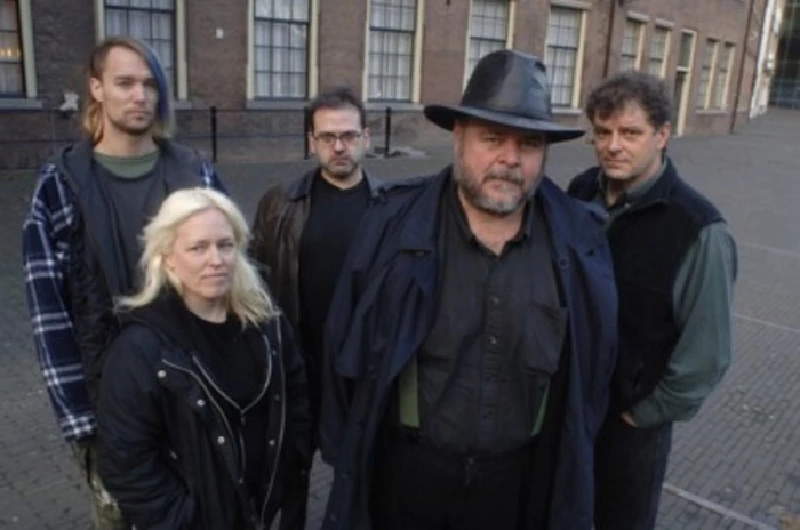
intro
Pere Ubu frontman David Thomas has recently opened Hearpen, a download site for Pere Ubu albums and related projects. He talks to Mark Rowland about why his dislike of the MP3 audio market has forced him to open it and his musical career
“Be clear on this point: we're not fans of the download audio market as currently constituted. But, here we are living in the sort of world we live in. It's not our fault. It's your fault. You. Personally. You allowed this to happen. You are here looking for this sort of thing. You create the marketplace. We simply react to the marketplace.” So says the hearpen.com website, the download site for Pere Ubu albums and related projects, run in part by Ubu frontman David Thomas. The site will be one year old in December, offering rare live recordings and singles in, according to Thomas, the best quality MP3 formats available. That doesn't mean that the quality is great on all recordings – most are live, after all – but on some, the difference is clear. As is the site's goals, spelt out in a typically blunt way; you want this stuff, so you'd better have it in the best quality available. We don't like it, but we'll give it to you. As well as Pere Ubu live recordings and singles spanning the past thirty years, the site features Thomas bands such as Two Pale Boys, the improvisational group with guitarist Keith Moline and saxophonist Andy Diagram. It also includes a live recording by the Accordion Club, which featured melodeon player John Kirkpatrick and drummer Chris Cutler, who would later join Pere Ubu. The most recent addition to the site is the recently remastered 'Dub Housing', Pere Ubu's 1978 album, which Thomas' has previously called “the masterpiece” written while the band were living in an apartment block on Cleveland's Prospect Avenue. With the site expanding to include more studio recordings, it can surely only grow in reputation among Ubu fans and newcomers. Its emphasis on sound quality is rare among MP3 sites, but it reflects Thomas' nature. Thomas has always been fairly outspoken about what he does and doesn't like, particularly when it comes to music and recording. It is understandable, considering that his work is all about those things – who wouldn't want their creative output to be the best it possibly could be ? In conversation from his current home in Hove near Brighton, Thomas is as engaging and interesting as his music in conversation; stuttering and veering off-subject occasionally, but with no qualms about giving his honest opinion. It is easy to see why some would brand him difficult, but it is clear that his occasional bluntness comes from a passion for his art, and music in general. PB : Some of the live recordings you're putting out, particularly the Two Pale Boys recordings, are very high quality. How did you get these live recordings to sound so good ? DT : The recording was just a mini disc through a sound board, so it's sort of what it sounds like. It was a pretty decent PA system. Then we just use, as we point out on the site, the best quality settings to convert them to MP3. That's why the files are large. So, the answer to the question is either that we have a good sound man and we know what we're doing. That's where the good sound comes from. The principle is with the website we're going for the best. If you use, and I'm not a big fan of it, but if you use MP3 at the highest quality settings and you don't cheat down the various ratios that you're allowed to cheat down then you generally can get a sound that is close-ish to that of vinyl. I'm not a big fan of vinyl either, but you know, we put some effort into it. That was the point of the whole thing, I was really tired of the commercial sites just slamming the compression on and really taking the life out of the thing and I suppose for certain kinds of music it doesn't matter and no-one really notices, but if you've worked on something you notice that it sounds like a dog's dinner. PB : You talk a bit about the ambient noise of live recordings on hearpen. What's your opinion of that noise ? Does it add or subtract from the listening experience for you ? DT : Some of the things are recorded are cassettes and things, so the quality varies. I quite like the sound of cassettes, those non-hi-fi recordings, which sound odd in conjecture with what I've just finished saying, but we always preferred cassette recordings, verses having something that's live that's really clean but disembodied, that has no ambience, no framework. The cassette recording of stuff, I've never minded it because that to me is far more life-like, often times, than a studio recording or a mobile recording where you have all the close mics or whatever it is you're using and it's all done top spec, but it doesn't sound like a live show. A live show is not just the sound – it's the guy standing next to you stepping on your toes and your girlfriend wants to go home because she doesn't like the style of music. You're standing in front of the wrong speaker, or it's got a blown cross over. The sound man's out of control or something's out of control and sending feedback spikes through everything, there's a cruddy bar, with people talking and clapping – all that sound, that extra sound, that ambient sound, is part of what a live show is. It's not an antiseptic episode. PB : What was the thought behind putting out so many live and rare recordings ? DT : I've always been a big fan of having live stuff out there. When the marketplace was different, we would put them out. Somebody on Amazon said that...what was it...'The Shape of Things' was the worst sounding record he'd ever heard. Well, it was recorded on a cassette in 1976, in a bar. What do you want ? Pere Ubu has had a long history of not being very co-ordinated when it comes to documenting itself. We don't have any videos. We didn't spend any time documenting anything. We just collected cassettes and later DATs and on and on and on. But I think that people should hear that stuff. I think that that's what we were that's what we came from, if you're into the band and you don't understand where we came from and what we sounded like. You're missing the point of the whole thing, because we tried not to repeat ourselves. We go through phases and then these phases disappear, but they're still part of what we are. Just following the idea that this band is a conceptual band, it has a conceptual history. I think it was Greil Marcus or someone like that who wrote about the old blues men. People would follow them over the course of their entire lives, over decades and they'd know that one song that was written in 1954 referred to another song in 1933 and so on. That seemed to be an intelligent way to pursue a course in an industry that is essentially ephemeral. The past is thrown away. That answer the question ? PB : It does. DT : That's good. I'm never sure if I'm answering the question. I always think I'm answering the question but I'm not always sure, but... there you go. PB : The Two Pale Boys stuff is described as “at least 50% spontaneous song generation” What does that mean in terms of song construction ? DT : It's put together through improvisation. Again, certain bits are if you made a note in it that's one of the ways that we solve the issue of how to record a band that that's improvisational. You'd go on a tour and record shows. They generally don't tell me, because I feel like it's a jinx when I feel like it's being recorded. And then they'd get together and pick out the best improvisations and sow them together. It was like a Chinese whispers sort of thing. They would send it to me and I would work something out with it and send it back to them. They'd make adjustments and send it back. We were never really communicating at any particular point about an intention. We just listen to what the other people were doing and do something along with that. When it comes to performing live, when we're actually doing things, generally someone is assigned the role of holding it together and generally that someone is Keith Moline (Pere Ubu guitarist-Ed) , who sometimes feels somewhat aggrieved that he's almost always the guy that's holding it together, though we do try to split that up. So one person is holding it together and one person is allowed to be free. Generally we have a good sense of what somebody's going to do and we react pretty quickly when somebody makes a change, because you can react to a change within a few nanoseconds. You can hear it coming. Tou know it's happening and you have an idea of where it's going to go. A musical change has only a limited number of options for where it's going to go. People might say "well, how can that be ?" but that's the way it is. You basically know where it's going to go. They basically know that my melodies always move down and things like that. They know the things that I like to do. We've just played together a long time and we kind of know what we're doing. That's the advantage of playing with the same people year after year after year – the trick is to get the right same people and once you've got them, you're in like Flint. PB : What about the lyrics? Are they improvised? DT : No no. I used to try to improvise lyrics but I was really unhappy with the result, because it tends to fall within certain categories. What tends to be improvised lyrically are the spoken word parts and the little introductions. Generally I go in with a set of lyrics from various things and they all have a link thematically with what I want to do that tour. Then I'll chop and change them. I'll start off with one set and change it to another, but because I'm changing to another set I have to improvise a link. Sometimes musically or lyrically in the middle of something. It's always based on going from one point to another. At certain points I try to stretch myself. There are certain points in a song where you're feeling confident and you've got the thing under control in your head and I try to move it somewhere. That's the point of freeing the voice from the constrictions of the instrument and of time. I'm always looking to move it, but I try to improvise only within the structure of these blocks that I'm working with. Otherwise it doesn't mean anything. Oftentimes you just end up with gobbledegook. It might sound good and there are tricks that you can do that will impress the audience, but you and your brother musicians know that it's just a shabby trick. If you think about it for a moment it doesn't mean anything. I try not to do it. Of course, I have my own shabby tricks, but I try to avoid the obvious ones, out of self-respect. PB : The lyrics on the Two Pale Boys seem to follow a narrative structure. DT : I'd go for that. PB : What inspires your lyrics ? Where do you get your subjects from? DT : All my songs start out as stories. They start out as back stories that really never actually appear within the song lyric itself. Behind every song there's a picture, a story, like a movie or something. That makes it easy because I know it and nobody else knows it and I pull stuff out of that, which is one of the reasons why I've tried to do things like the Two Pale Boys in addition to my normal, if you can call Pere Ubu a normal, rock band. It's hard to find time in a rock band. It's like, and I've made this comparison before, it's like a Hollywood movie and this is a cheap little art movie. Neither one is better than the other. They're just better suited to different things, different angles and perspectives. In the Pale Boys, there's time to try out improvisational things, there's time to pull things out of those back stories, and that's generally where a lot of it comes from. PB : One song particularly stood out, 'Three Things' from the 'Raygun Suitecase' album, which features a story about a neighbour committing suicide. What inspired that ? DT : That's true, that happened. It wasn't my neighbour, it was a neighbour of my parents. They got tired of living in the country and they got this cheapish little apartment in the city that they would come to every so often, but they didn't want to spend a lot of money on it, so it was in an essentially working class area. The story is essentially true, I didn't really embellish any element of it. That sort of thing is rare though, it was such a powerful story that I had to do something about it. PB : It is certainly memorable. DT : Well, yeah good. My parents weren't to happy about it, but there you go. PB –: Well, no-one makes music to please their parents. DT : You can't please your mom and dad all the time. You can do it every once in a while, keep 'em off your back during the other times. PB : There was another song about Wayne Kramer giving you a call and asking you to write a punk song for the new millenium. DT : Of course, yeah, I wouldn't make that up. PB : Are those true stories rare in your lyrics, or do they make up the bulk of your lyrics? DT : A lot of it's true. It's just not quite true in the context that it's true in, if you follow that. You chop and channel things, certain elements. Everything is based on a movie in my head, on a picture. There are stories, from real life. Generally the story develops from one image, one scene – I'll be driving along and I'll see an abandoned gas station or something – and the story seems to be...this is why I always talk about geography, or in 'St Arkansas' – for that album I went out on the road for a few weeks and just wrote. I didn't stop, I'd just pass things. Sometimes I'd pass a billboard or this or that and the story was obvious to me, you know, why is this. That's the mechanism that you depend on in music or in sound. You present the listener with a collection of sounds, sometimes incongruous, sometimes parallel, sometimes at crossed purposes to what you're intending. It's Pavlovian. You present a sound to a listener and the listener has to create sense out of it. It's not something they sit there and try to decide. You know, shall I make sense out of it. It's Pavlovian. The bell rings and you salivate. The sound happens and you have to try to put it in context. For human beings, there is no such thing as meaninglessness, or non-sense. You have to make sense of it and that's one of the fundamental tools of music and of sound, so that's why we're interested in the way something sounds because that's part of the story. That's part of what we're working with, with the listener. PB : You come originally from Cleveland, but now live in Hove near Brighton. What influence has Hove had on you since you've lived there ? DT : I don't know. I don't pay attention to it. I just live here. It doesn't mean anything to me. Certain things are interesting, but they don't mean anything, I don't have a history with the place. The only geography that means anything to me is American geography, because I know it. I know its history, I know the context for everything that I see. I don't presume to be able to...American geography is like the American language. I speak it. I wouldn't presume to work in another language – well I have. I worked in French once – I wouldn't presume to speak in the language of Brighton or Hove or London, or England particularly. There are some impressive things there, but it's like you're a tourist, it's like a tourist going to a country and hearing some native instrument and deciding to slab it into some pop song. To me that's the worst kind of imperialism there is – you should never take something from somebody else's culture and shove it into a pop song because it sounds good. It's a shiny bauble that you can impress the masses with, I don't buy it. You should stick to your own language and your own culture because that's all you know and that's all you can give to somebody else. Let the English, or let the Indians or let whichever nation there are speak for themselves, because otherwise, what are we going to learn from each other ? PB : I guess when you visit somewhere as a tourist, you tend to filter out the bad. DT : Well you filter out the bad and you filter out the good. You filter out everything but your own perceptions. It's not necessarily filtering out the bad. You filter out the alien, but it's the alien we're going to learn from, not the things that you recognise. You want to be confronted with things that you don't recognise and that comes from another world. That's what I want, I don't want to hear about what a tourist has to say about anything. PB : Does the distance between you and the US disconnect you from your subject matter at all ? DT - No I've always been disconnected. That was the whole story of Cleveland, that we were disconnected. I don't have any problem with disconnecting. My only problem is to connect. No problem at all. Living in Cleveland is just like living in Brighton, in those terms. After a while, you start to live in ghost towns anyway. As Cleveland was shaped and channelled over the years and the things that we loved were torn down, moved destroyed or made cheap and nasty. Increasingly you live in a ghost town. Now I basically live in a ghost town. It happens to everybody. It's not just me. Whether people recognise it or not they begin to live in ghost towns. That's the nature of modern culture, that's the nature of modernism. As I point out at some point or another in one of my songs, you can take a ghost town wherever you go. It doesn't leave you. It's imminently transportable. PB : I guess that makes sense. DT : Everything I say makes sense. It's just whether people understand it or not. PB : Your stance on the hearpen website is interesting, the fact that you're driven by a necessity to put out better quality MP3s. DT : You can't have a commercial contract now unless you sign away these rights to download. We like commercial contract wherever we can get them, and if it's going to be done anyway, we want it done right, so that it actually sounds good and retains its meaning. Cooking Vinyl is allowing us to put out the reissue of 'Dub Housing' in November and I hope to continue that trend so they can do whatever they want in their commercial fields, which they have to do – I'm not criticising them for it, it's the nature of the marketplace – and hopefully we can work out arrangements where we can at least host the best versions of it. We're pretty much satisfied with in terms of its quality – it's okay. It bears up. Especially considering that the whole thing is such a nightmare anyway, because as soon as you take a recording out of the studio it begins to degrade, you know. You've got the manufacturing process, you've got the hideous swampland of bad hi fi systems out there. It's no good getting precious about the whole thing. Last time it sounds good is when you finish in the studio. You can't stick your head in the sand. This is the marketplace now, or it's a major element of the marketplace and there's no going back. There's no point just sitting there and bemoaning the future, bemoaning the present, just get on with it and preserve the things that need to be preserved. Of course most people will buy things from commercial sites that aren't as good quality but hopefully in time, word will spread, and if you're looking for Ubu, come to this site. It's the best you're going to get. PB : It's interesting that you advertise your dislike of MP3s and point the finger of blame squarely at the public for buying them – not necessarily the strongest marketing strategy. DT : We've never been known for good marketing strategy. That's why we're not particularly popular or successful. All we do is tell the truth. If you can't handle somebody saying "look, I don't like this stuff at all, but this is it, and by the way, I didn't create this. You're the ones that want it" I don't have any problem with treating the audience, the customers as intelligent people. They understand that life isn't all some idealistic, rosy thing, you know. Am I going to lie to them? Tell them that I think it's great? No. T here are some advantages to it that I'm discovering as we go along, and I'm warming to it. I've toned it slightly down. One of the things that I like about it is that I always like fixing things. To me, a record is never a finished statement, it's just simply a point in the screen, a point along the way. For instance, I put that Accordion ('David Thomas and the Accordion Club') on there which is really terrible sound quality but I love that band and I ran across thinking I've got to put this out. It's the only cassette I have. Since I put it out, someone has sent me a new cassette that's better quality and so one of the advantages here is that when I get around to it, I'm going to post up the better quality recording and everybody who bought the old cassette will get an e-mail allowing them a free download of the new one. That's a great advantage. You can fix this stuff and I always like fixing things. I'd like to remix almost everything I've ever done, or do something like that over five or six years. Cooking Vinyl are fine with that as long as I put it up on the website, because it doesn't really take their business away. It's not like a major force in the marketplace. So artistically I'm warming to it. They can only make it better. We are going to do some things with FLAC that will be studio quality. It's just that they'll be monstrously big. PB : Thank you.
Band Links:-
http://www.ubuprojex.com/https://en-gb.facebook.com/official.ubu/
https://twitter.com/ubuprojex
https://en.wikipedia.org/wiki/Pere_Ubu
Picture Gallery:-
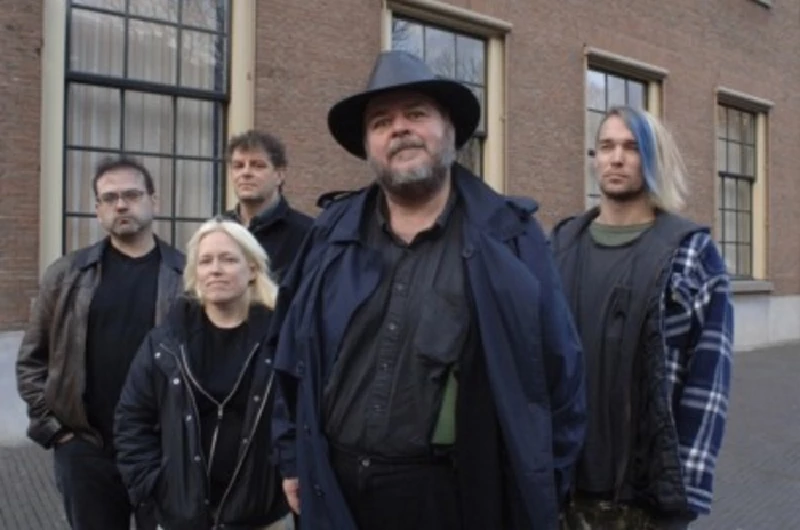
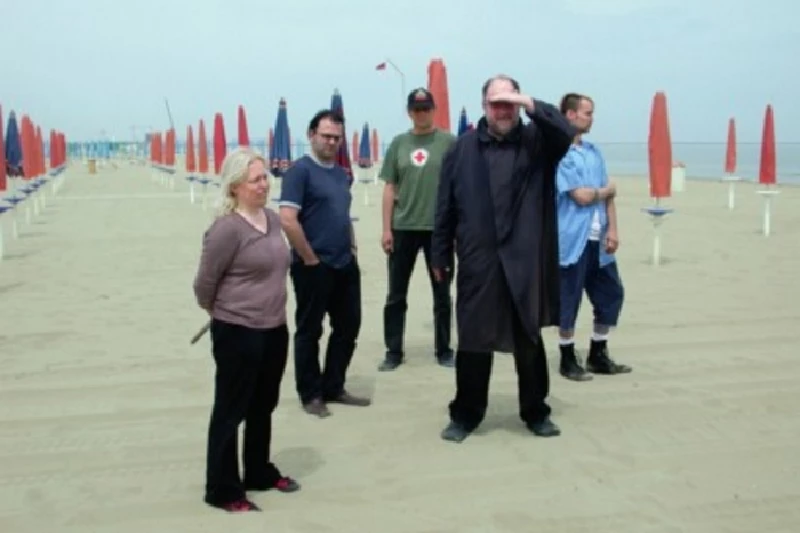
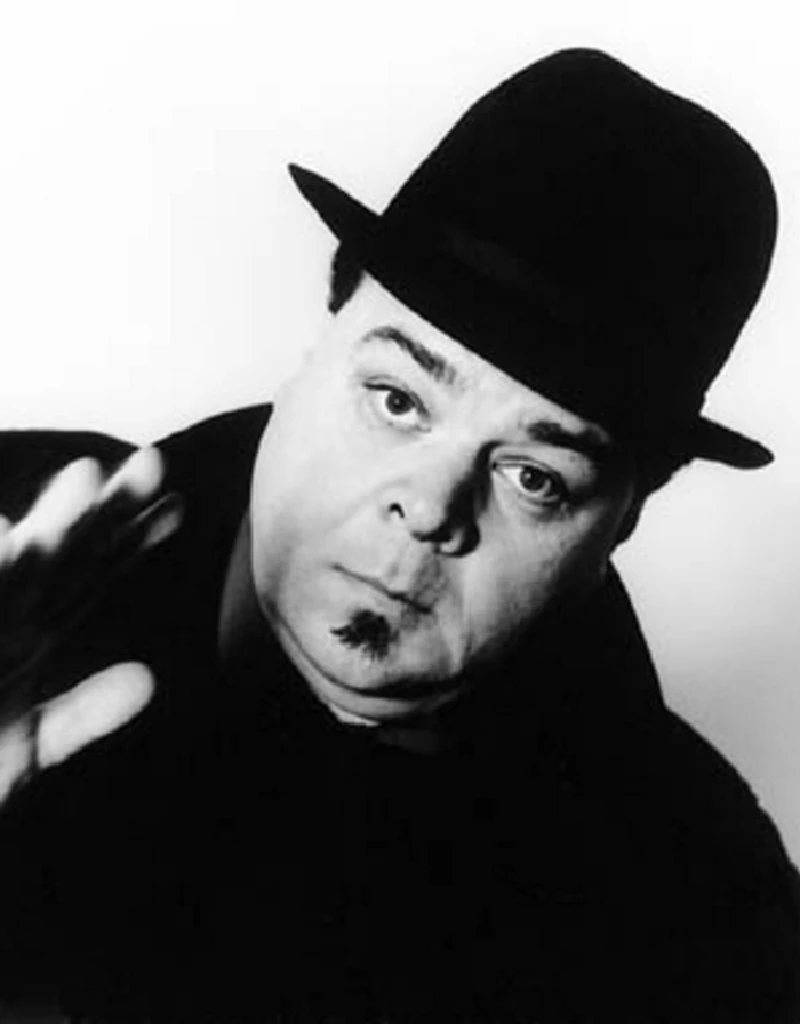
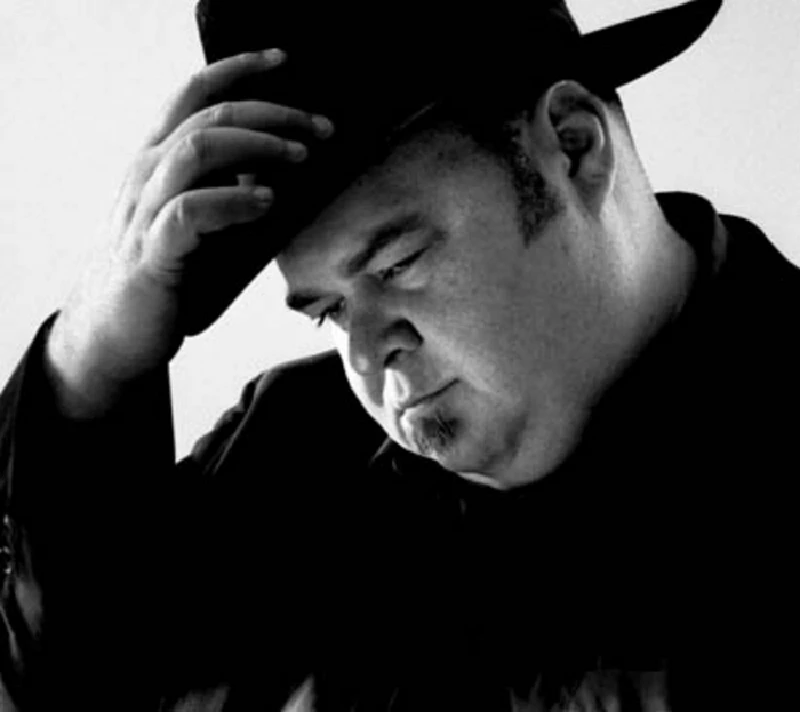
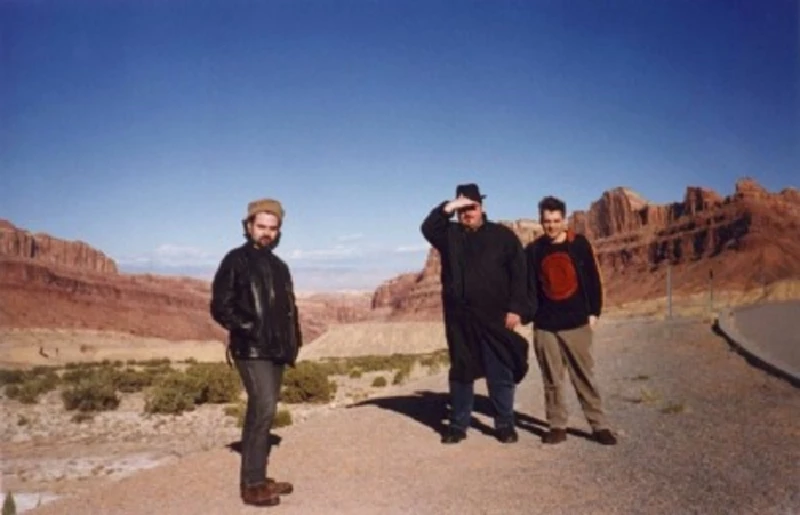
interviews |
|
Interview (2017) |
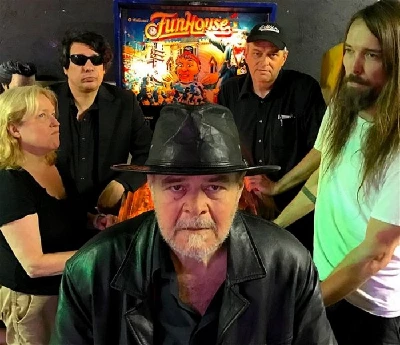
|
| Erick Mertz talks to David Thomas, the front man with influential alternative rock act Pere Ubu, about his group's experimental new album, ‘20 Years in a Montana Missile Silo’. |
| Interview (2012) |
| Interview (2009) |
| Interview with David Thomas (2006) |
| Interview with David Thomas (2005) |
| Interview with David Thomas (2004) |
| Interview (2004) |
profiles |
|
A Self-Indulgent Reflection on David Thomas (2025) |
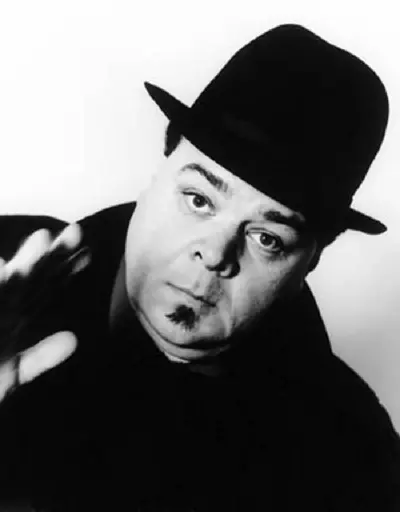
|
| Mark Rowland reflects on four interviews with Pere Ubu’s notoriously cranky frontman David Thomas, who died in April. |
live reviews |
|
Musician, Leicester, 12/11/2014 |
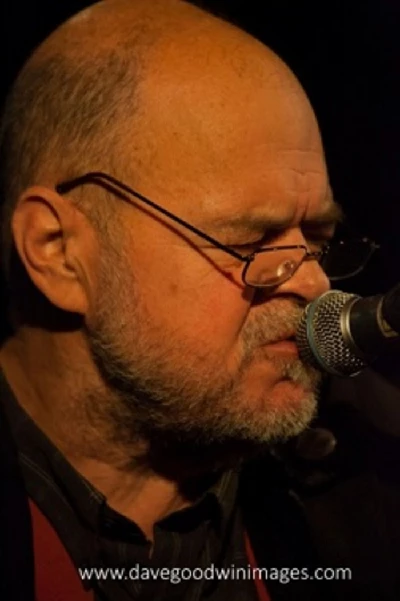
|
| Dave Goodwin at the Musician in Leicester watches Peru Ubu play a confrontational yet brilliant double set of experimental rock |
| Blackheath Halls, London, 27/2/2010 |
| Islington Academy, London, 18/9/2005 |
favourite album |
|
The Modern Dance (2006) |
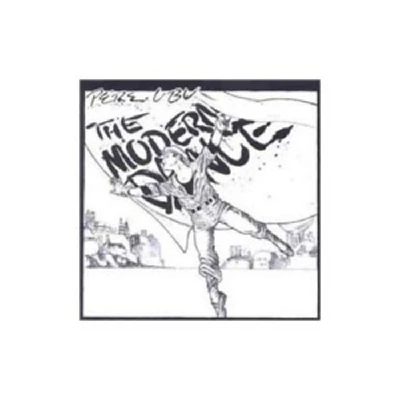
|
| For our 'Re : View' slot, in which we look back on old albums, Mark Rowland writes about Pere Ubu's 1976 classic debut album 'The Modern Dance', which has recently been reisssued |
| Dub Housing (2002) |
reviews |
|
Lady From Shanghai (2013) |
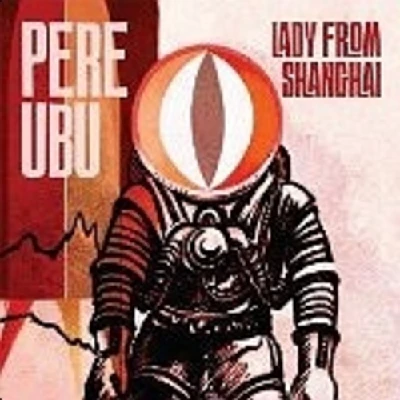
|
| Complex, but compelling fourteenth album from Cleveland avant-garde rockers, Pere Ubu |
| Long Live Pere Ubu (2009) |
| Why I Hate Women (2006) |
| St Arkansas (2005) |
most viewed articles
current edition
Carl Ewens - David Bowie 1964 to 1982 On Track: Every Album, Every SongArmory Show - Interview with Richard Jobson
Colin Blunstone - Thalia Hall, Chicago, 16/7/2025
John McKay - Interview
Visor Fest - Valencia, Spain, 26/9/2025...27/9/2025
Bathers - Photoscapes 1
Billie Eilish - O2 Arena, London, 10/7/2025
Loft - Interview
Robert Forster - Interview
Sir Tim Rice - Interview
previous editions
Heavenly - P.U.N.K. Girl EPManic Street Preachers - (Gig of a Lifetime) Millennium Stadium, Cardiff, December 1999
Beautiful South - Ten Songs That Made Me Love...
Oasis - Oasis, Earl's Court, London, 1995
Prolapse - Interview
Peter Perrett - In Dreams Begin Responsibilities Interview Part One
Coldplay - Wembley Arena. London, 16/8/2022
Boomtown Rats - Ten Songs That Made Me Love....
Trudie Myerscough-Harris - Interview
Pixies - Ten Songs That Made Me Love...
most viewed reviews
current edition
Sick Man of Europe - The Sick Man of EuropeDavey Woodward - Mumbo in the Jumbo
Amy Macdonald - Is This What You've Been Waiting For?
Lucy Spraggan - Other Sides of the Moon
Phew, Erika Kobayashi,, Dieter Moebius - Radium Girls
Suzanne Vega - Flying With Angels
Bush - I Beat Loneliness
Blueboy - 2
Alice Cooper - The Revenge of Alice Cooper
Cynthia Erivo - I Forgive You
Pennyblackmusic Regular Contributors
Adrian Janes
Amanda J. Window
Andrew Twambley
Anthony Dhanendran
Benjamin Howarth
Cila Warncke
Daniel Cressey
Darren Aston
Dastardly
Dave Goodwin
Denzil Watson
Dominic B. Simpson
Eoghan Lyng
Fiona Hutchings
Harry Sherriff
Helen Tipping
Jamie Rowland
John Clarkson
Julie Cruickshank
Kimberly Bright
Lisa Torem
Maarten Schiethart